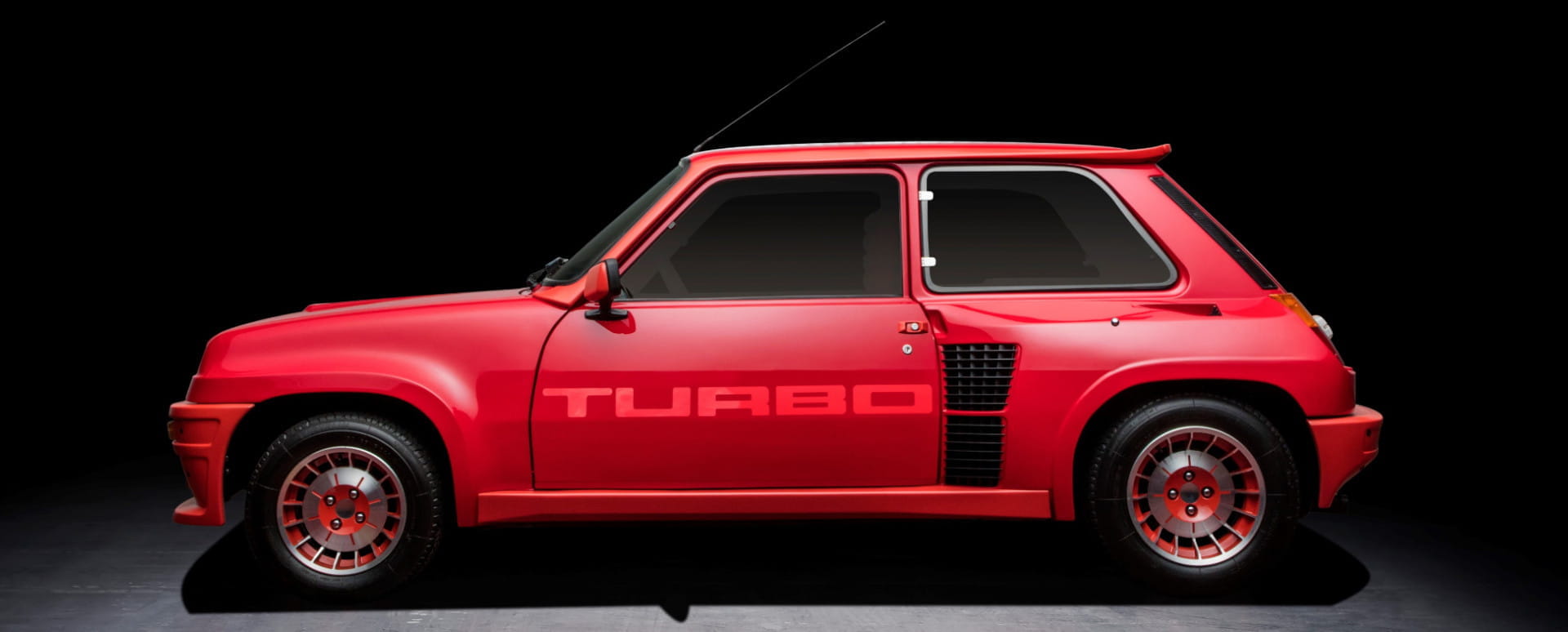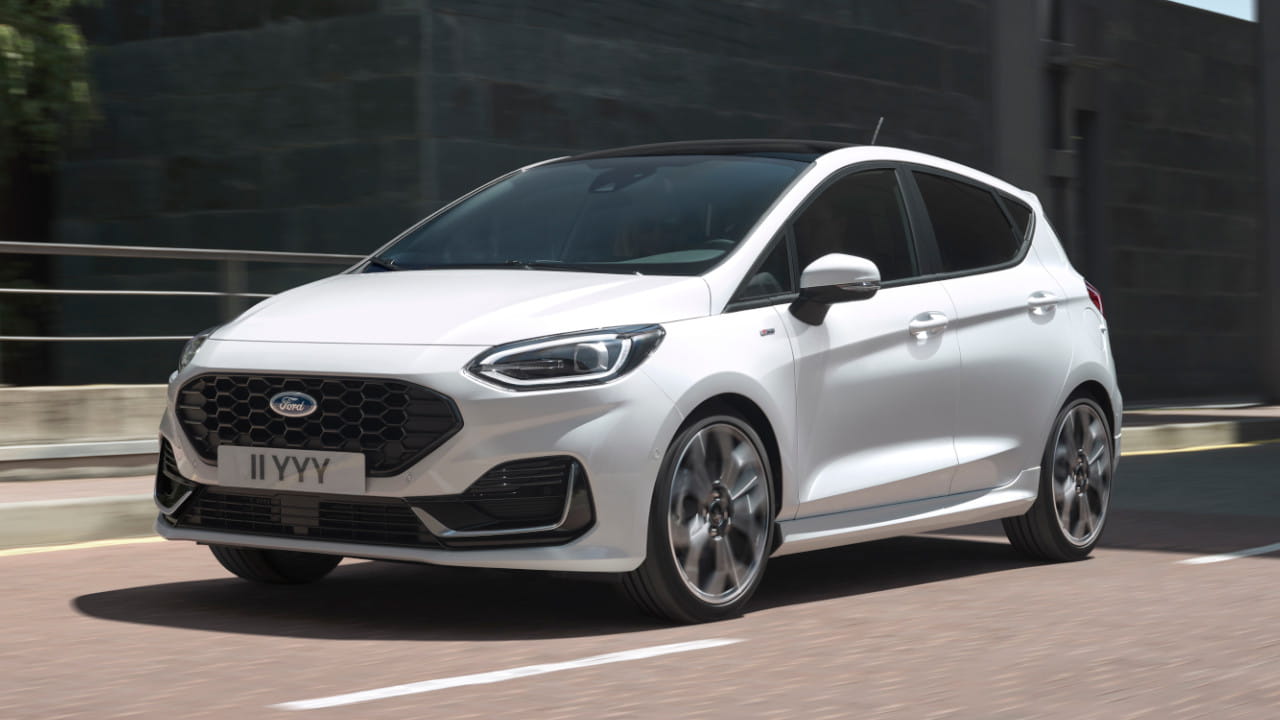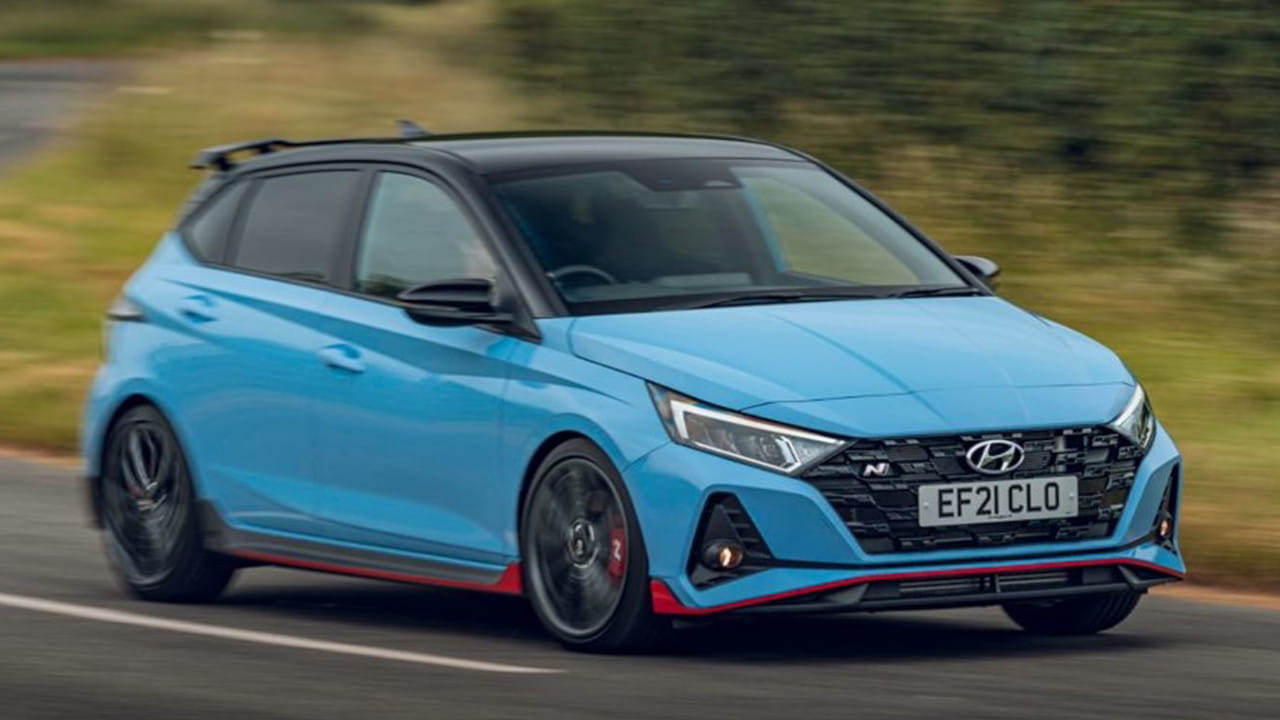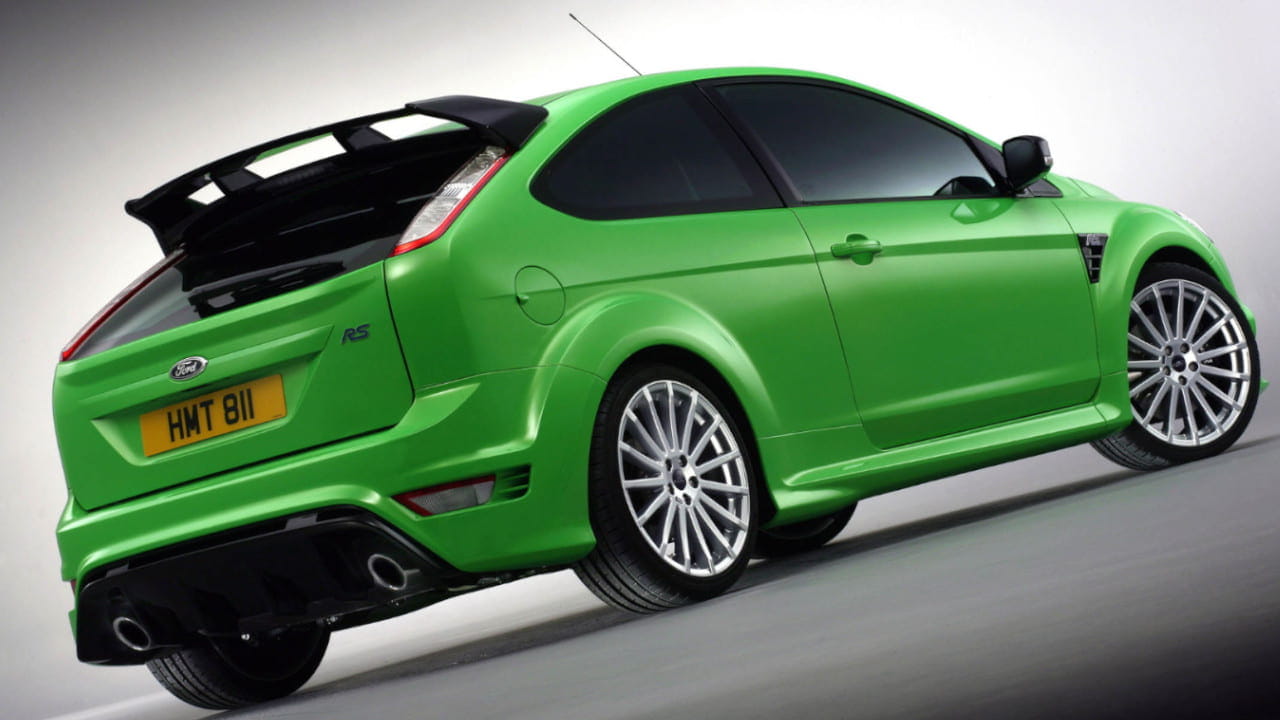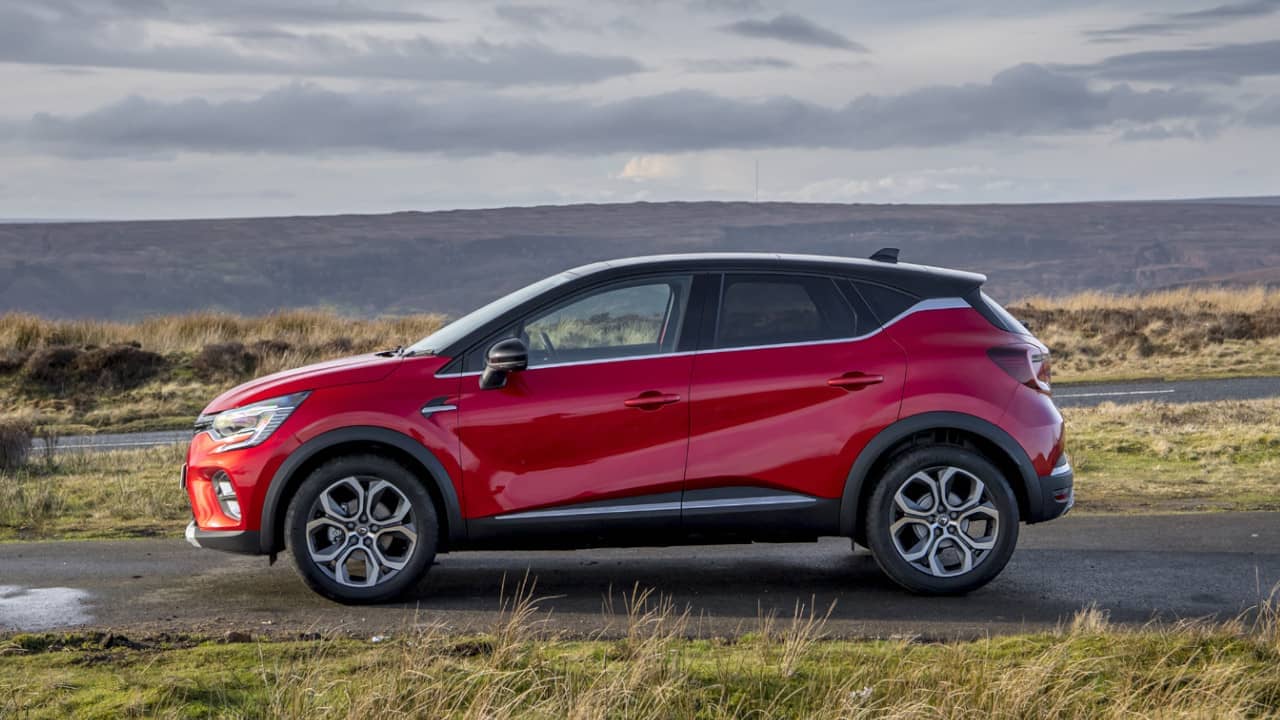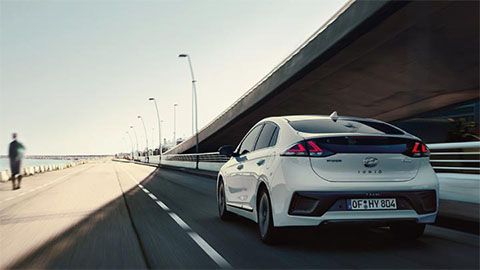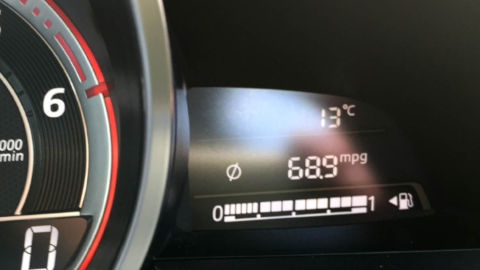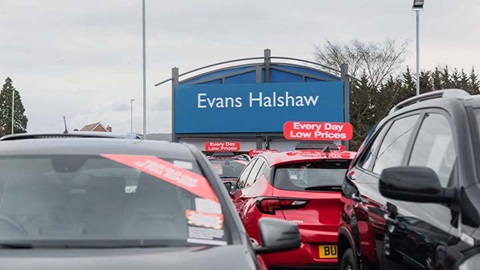What is a Turbo Engine?
24th Oct 2023
What is a turbo engine?
Think of a turbo engine, and you'd be forgiven in thinking of the 1970s and 1980s with models like the iconic Porsche 911 Turbo, or even Renault 5 Turbo (pictured above) showcasing just how special, radical and premium turbos were - especially in cars.
But a turbo engine has evolved over the years and so too have the cars they feature in. A turbo engine was once a premium thing which increased the performance of an engine, but today, a turbo engine also offers access to better fuel economy too.
Read on to discover more about turbo engines.
- How does a turbo engine work?
- Advantages of a turbo engine
- Disadvantages of a turbo engine
- Cars with turbo engine
- Should you buy a car with a turbo engine?
How does a turbo engine work?
To put it simply, a turbo works by feeding more air into an engine.
Internal combustion engines work via a 'suck, squeeze, bang, blow' process. The engine sucks in air and fuel, squeezes/compresses the mixture, causes a bang and then finally blows out of the exhaust.
Introduce a turbo to the mix, and it increases the air forced into the engine. By compressing the air it allows the engine to take more air into its cylinders, which also means it can take on more fuel - giving a bigger bang (explosion) in each cylinder.
In more modern times, turbo engines can also boost economy. This is because manufacturers can use smaller engines than normal, and because a turbo increases performance, the match is perfect.
For example, instead of using a 1.5-litre 4-cylinder engine, manufacturers can use a smaller 1.0-litre 3-cylinder (like the Ford Fiesta pictured) and get similar performance (sometimes better) along with enhanced fuel economy.
Advantages of a turbo engine
There are some decent advantages to be had when using a turbo in a combustion engine. These include:
- Increased performance of the engine (example Hyundai 120 N pictured)
- Increases the economy of the engine
- Increased engine efficiency
- Allows smaller engines to produce power much more than their size suggests
Disdvantages of a turbo engine
As with anything, as well as advantages, adding a turbo to an engine could also mean some disadvantages could occur. These could include:
- Turbo engines can suffer from 'turbo lag' meaning there is a delay before the power is available
- Can cause a car to surge, causing loss of traction
- Can become hot and therefore require more oil
- Can become expensive if you're looking to modify a car to 'big power', cars like the Ford Focus Mk2 RS (pictured) are commonly seen modified and will require an even bigger turbo after circa 420bhp
Cars with turbo engines
As previously mentioned, the word turbo is mainly associated with performance (Porsche 911 Turbo S pictured), but in more recent times manufacturers have used turbos to get their smaller engines performing better, and returning enhanced economy.
Sports and performance cars may well have been flying the flag for turbo power, but now manufacturers use turbo engines to make their smaller engine cars more appealing and to ensure their emissions stay low too.
The turbo engine can be found incrementally in cars with everything from family friendly SUVs and hatchbacks, to performance hot hatches and iconic sports cars. Examples are listed below:
- Renault Captur SUV (1.0-litre, 3-cylinder, 98bhp, 0 to 62mph in 12.9 seconds, circa 46mpg)
- Ford Fiesta ST-Line EcoBoost (1.0-litre, 3-cylinder, 123bhp, 0 to 62mph in 9.7 seconds, circa 47mpg)
- Hyundai i20 N (1.6-litre, 3-cylinder, 201bhp, 0 to 62mph in 6.2 seconds, circa 45mpg)
- Ford Focus RS Mk2 (5-cylinder, 300bhp, 0 to 62mph in 5.7 seconds, circa 30mpg)
- Porsche 911 (992) Turbo S (3.7-litre, 6-cylinder, 641bhp, 0 to 62mph in 2.7 seconds, circa 23mpg)
Should you buy a car with a turbo engine?
Turbo cars from yesteryear can be very old school in their approach, concentrating on increasing performance, but also suffering from disadvantages in the process.
Today, more modern turbocharged engines are brilliant in finding a sound balance between performance and economy, like the Renault Captur pictured, it allowed Renault to produce a smaller, more fuel efficient engine, that mimics a larger capacity unit.
Of course, you can still tailor a turbo to simply increase performance - taking a hit in economy as part of the process, but you can also create a smaller engine that uses a turbo to be more efficient - as a smaller engine weighs less, and therefore naturally uses less fuel.
Find your perfect car at Evans Halshaw
Whichever type of engine you'd like in your car, you'll find a comprehensive choice of cars at Evans Halshaw.
We have great deals on new cars, along with a fine selection of used cars too. So, if you're after something with modern turbo technology, or fancy something a little older, our stock contains a quality selection from leading manufacturers.
Alternatively, if you enjoyed this article, check out more in our dedicated blog section here.

